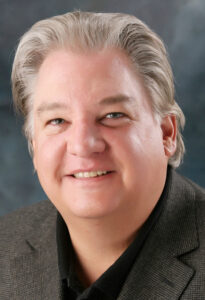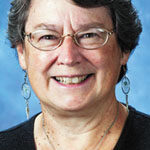By Keith Soko
This article is a continuation of the series on our new “Just Theology” intro course in the Theology Department at St. Ambrose University in Davenport. It is an overview course in theology, with the underlying theme of social justice, and is ideally the student’s first theology course. It examines the various academic areas of theology, key beliefs, persons and developments and how justice has, and should be, a theme running throughout the Catholic and Christian tradition.

When talking about justice, one resource I like to use is the Seven Catholic Principles of Social Justice from the U.S. bishops. These include: 1) Life and Dignity of the Human Person; 2) Call to Family, Community and Participation; 3) Rights and Responsibilities; 4) Preferential Option for the Poor and Vulnerable; 5) Dignity of Work and the Rights of Workers; 6) Solidarity; and 7) Care for God’s Creation.
Other lists out there have 10 or 12 items, but I find these seven principles to be the most comprehensive. Our Campus Ministry Department also uses them. Hopefully, as students are doing service or involved with campus ministry, they’ll recognize these seven principles that they had to learn in class!
Before we talk about justice, we begin looking at what theology is. I use an article by theologian Father Ron Rolheiser where he argues that theology and catechesis play different roles (Catholic Messenger, 10-31-13). Catechesis involves learning the basics of the faith, such as in Sunday school or CCD. It involves learning what you need to know if you want to join or be in a religion. As such, he notes that “Catechesis is therefore, by definition, an essentially conservative endeavor.”
However, as part of a university, he explains that theology is therefore “an essentially liberal endeavor.” This does not equate to liberal and conservative labels as in political discussions, but in the sense that theology does not just “echo the faith” it goes further, seeking to understand and articulate it “to a questioning and critical mind.”
Father Rolheiser points out that because of this, a somewhat healthy tension always exists between these two endeavors — between the people in the pews, focusing on catechesis and feeling that perhaps theologians are asking too many questions, and theologians who perhaps feel the faithful are not asking enough critical questions.
He emphasizes, though, that “the Church needs both.” In an introductory class such as this, we don’t get much into areas of debate; the point is to show that theology is an academic discipline and that it does involve asking questions. In fact, in Catholic theology, the four sources that one should draw on are often described as Scripture (the Bible), Tradition (official Catholic teaching as it has developed throughout history), reason (our intellect, using our mind) and experience (our own human experience, which involves current discussion and interpretations).
For some students, a first theology course is scary enough (“Are they going to try to convert me?!” “What if I start to question my faith?!”). They are often reassured, however, that we are not just memorizing facts (although we do that); we are also allowed to ask questions. And that is a healthy part of any adult faith. As Thomas Aquinas argued, faith and reason should not be contradictory since they come from the same source, which is God.
Fr. Rolheiser concludes that “Catechesis is the seminary, a necessary place to start and protect young and overly tender plants, whereas theology is a less protected place where you ultimately grow the oak tree.”
I don’t know if I agree with that analogy completely, but St. Ambrose is famous for our oak trees and at one time used the “Oaks” nickname. So, I’d like to think that we are growing oak trees at St. Ambrose, one student at a time.
(Keith Soko, Ph.D., is a professor in the Theology Department of St. Ambrose University in Davenport.)











